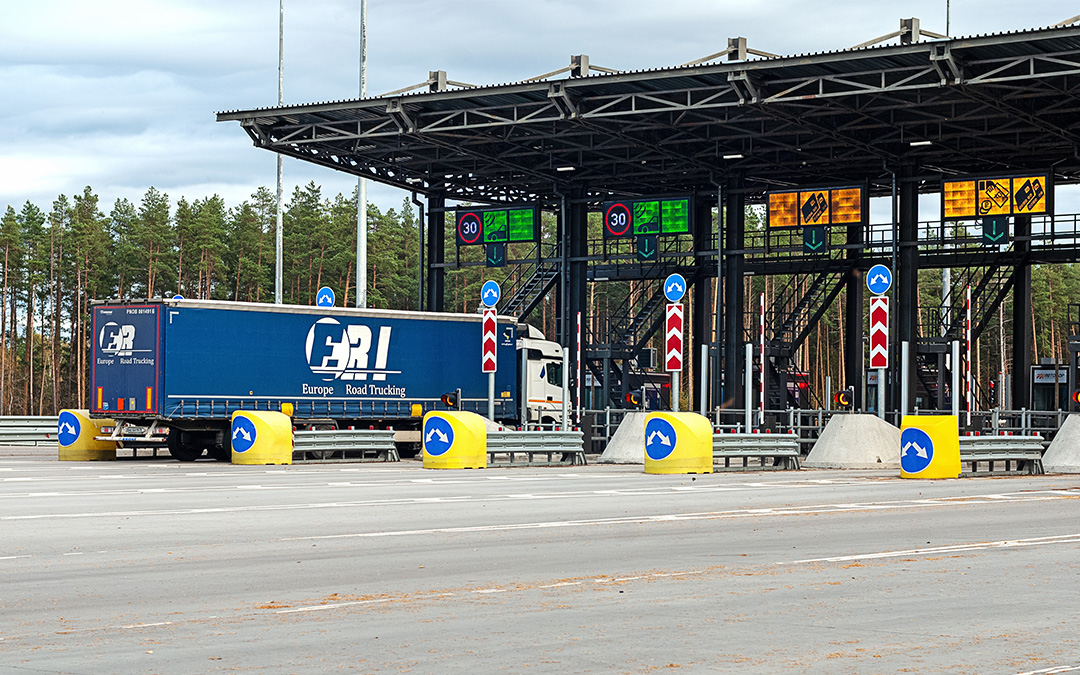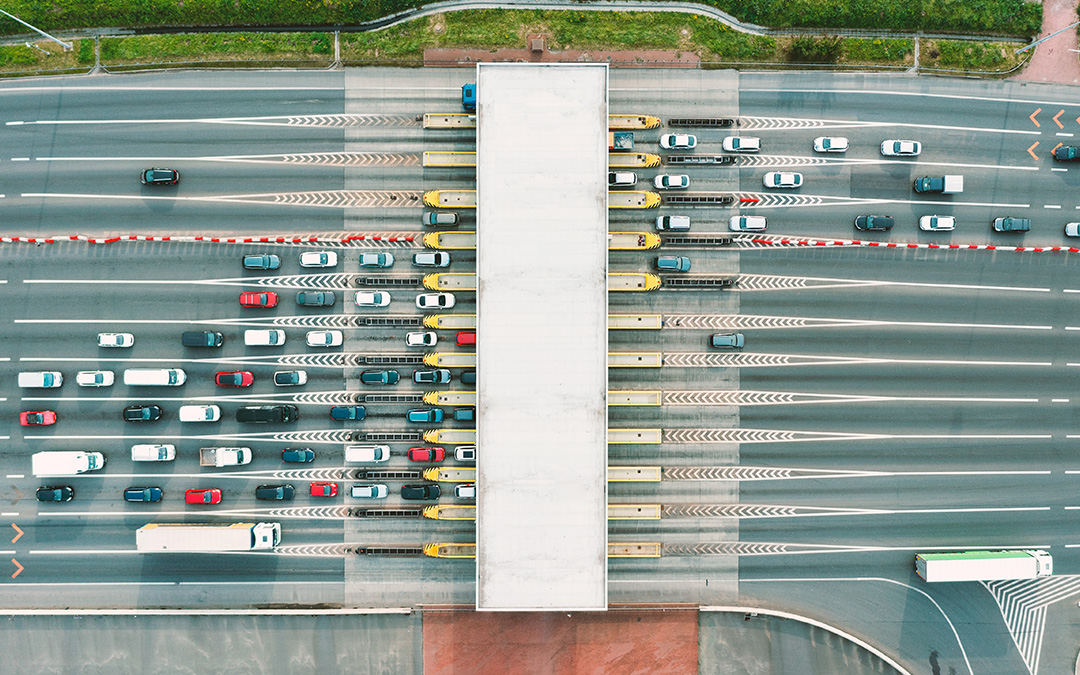Wherever we stop with the #ContiEuropeanRoadshow, it is due almost everywhere: the truck toll. What makes the whole thing so confusing is the large number of country-specific regulations. More than half of the European countries collect tolls, and almost every one of them has its own toll system and tariffs.
Some countries, such as Austria and Switzerland, still use the vignette system. But in many countries, tolls are already collected and debited electronically either through on-board units or tagging systems. This improves traffic flow and reduces waiting times at toll booths.
Complex tariff structures
Relatively manageable is the situation in the Netherlands, Luxembourg, Denmark, and Sweden. There, the truck toll for vehicles over 12 tons is covered by the purchase of the so-called Euro vignette. Things get even more complicated when you consider the complex tariff structures and factors according to which the toll is calculated in the other countries. For example, some countries levy charges for all vehicles, others only from a weight of 3.5, 7.5 or even 12 tons. Other factors that are considered may include vehicle class, road type and the distance traveled. The emission class can also play a role. And while some countries only levy charges on freeways, drivers in other countries have to dig into their pockets on main and trunk roads. As well as in some places for the use of passes and bridges.
 Seemingly the calm before the storm – it’s definitely not always this empty at toll stations. Photo: Shutterstock.
Seemingly the calm before the storm – it’s definitely not always this empty at toll stations. Photo: Shutterstock.
Watch out, low emission zone!
In addition, tolls can also be charged in urban areas. In Germany, for example, some cities have environmental zones in which only vehicles with environmental badges, some of which are subject to a charge, are allowed to drive. London levies an inner-city toll known as the “congestion charge”, Stockholm the “Stockholm congestion tax”, and Oslo has an inner-city toll that is payable at peak times. Lisbon and Porto also levy tolls for the use of certain roads in some parts of the city. And in Belgium, there are low emission zones for which many vehicles have to buy low emission zone day passes.
Brand new: In Germany, there’ll also be a CO2-dependent truck toll starting from December 1, 2023. Then all commercial vehicles over 7.5 tons must pay a CO2-dependent fee. The amount of the surcharge is 200 euros per ton of CO2. The charge is based on the newly introduced CO2 emission classes.
As the whole thing is based on an EU directive, other countries will follow suit:
- A differentiated truck toll based on CO2 emission classes is to be introduced everywhere by March 2024.
- Emission-free vehicles are to be exempt from the toll by December 2025.
- By March 2027, the toll obligation will be extended to all trucks over 3.5 tons.
What happens next
And what else can we expect? Tolls are likely to continue to rise due to increasing infrastructure maintenance costs, the need for new infrastructure and inflationary pressures on operating costs. In addition, environmental concerns may also continue to have an impact, with possible incentives or penalties as already seen in France. Tolling systems are also becoming more sophisticated, allowing for dynamic pricing models based on factors such as congestion, time of day and vehicle type. This may lead to more variable toll prices based on real-time conditions.
Expensive violations
Due to all the different toll systems, it is advisable to check the current rates and charges on the official websites of the respective toll booths or transport authorities before setting off. This is because the fines and penalties for violating the toll obligation are often severe. In
How does it apply to you? Can you still keep track of the toll charges? And where do you think the collection works best?


0 Comments